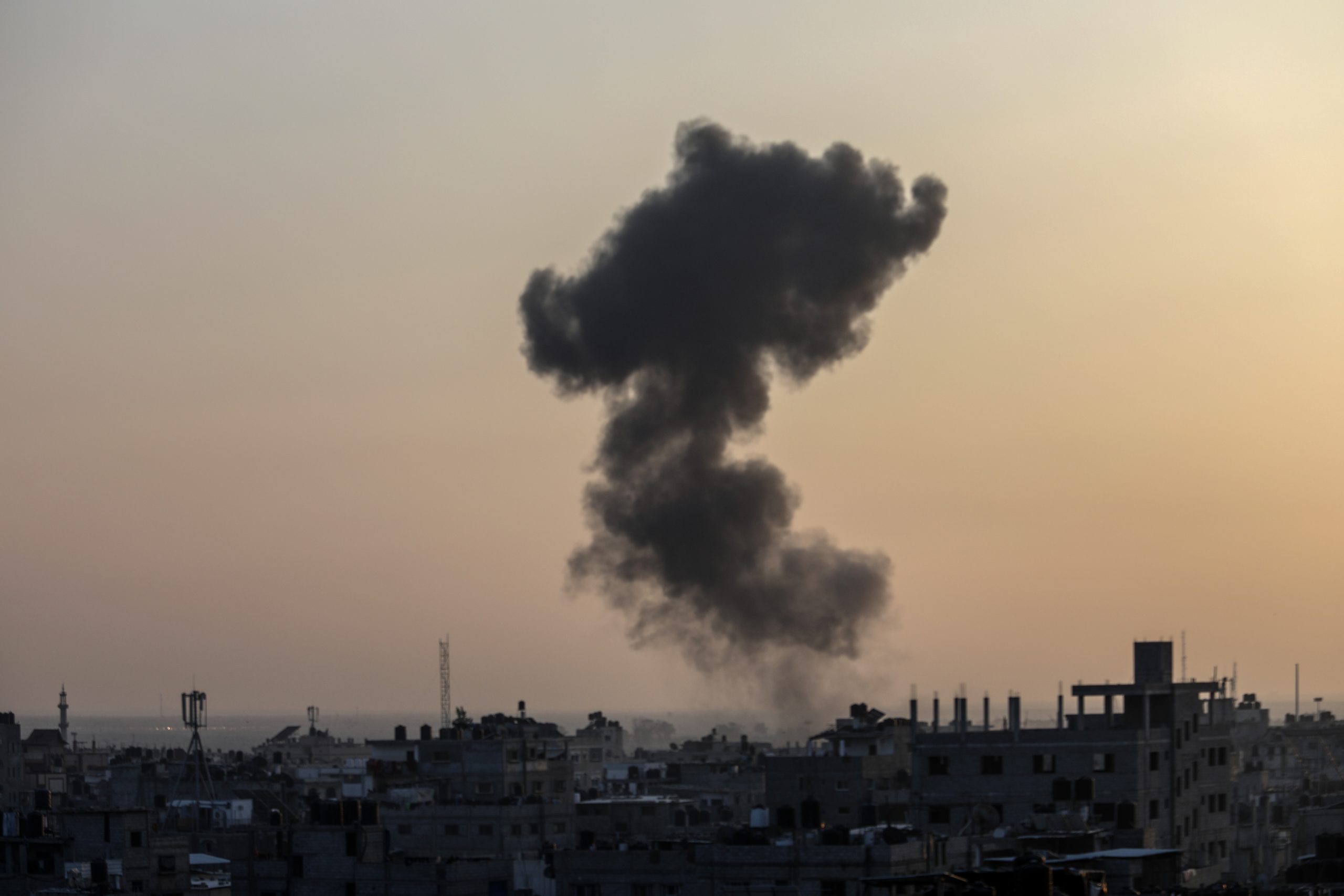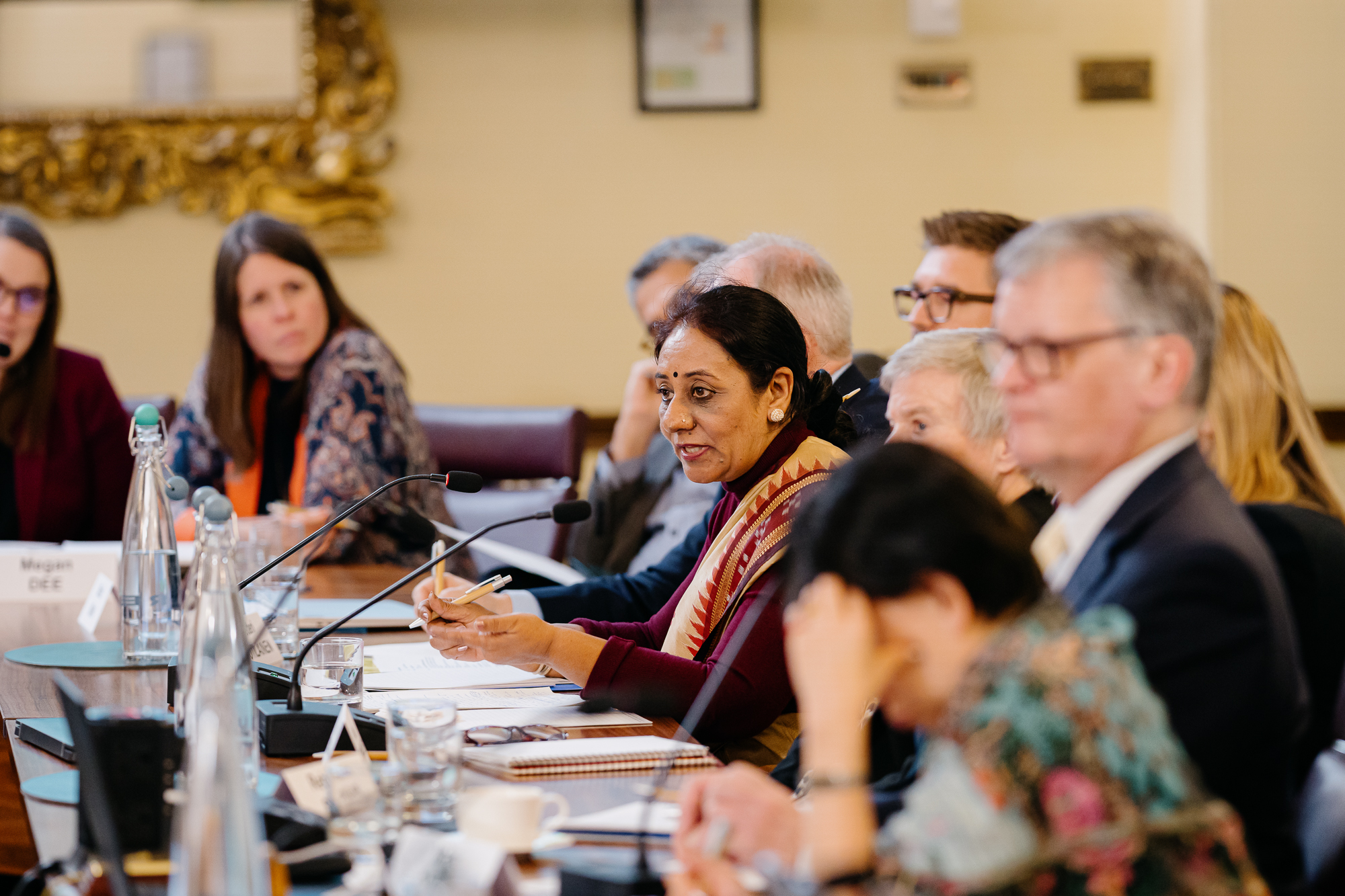As the recent article by Schultz, Perry, Kissinger and Nunn shows, debate about the future for nuclear deterrence as a strategy and a policy tool continue to evolve.
This meeting assessed the implications of these questions for the future shape and viability of nuclear deterrence and assurance. We assessed the possible consequences of the recent events in the Middle East for the state system there, the trends in nuclear latency, and the sources of deterrent strategy. Whether, and how, nuclear deterrence can be maintained in a process of nuclear reductions towards low numbers was also examined, as was the continuing requirements of infrastructure and human capital.
Key points:
- The United States provides extended deterrence guarantees to nearly 40 countries around the world, primarily in Europe, Northeast Asia, and the Middle East, but seeks reassurances in return for its assurances to allies. It wants a cooperative relationship that manages crises and shares the costs and burdens of defence.
- NATO’s Deterrence and Defence Posture Review provides an opportunity to restore strategic thinking among Alliance members. The DDPR is about more than just the future of nuclear weapons, and can be seen as an opportunity as well as a bureaucratic compromise necessary to get the Strategic Concept approved. NATO needs a portfolio of capabilities to deal with all the threats the Alliance may face. This does not mean only nuclear weapons—they cannot deal with everything. This is an opportunity for the Alliance to regain some strategic competence.
- There is an ongoing debate over the role of non-nuclear systems as a substitute for nuclear weapons. As NATO reduces its nuclear forces, it is also reducing its conventional capabilities. How can the Alliance re-balance its force levels when it is reducing everything? The traditional argument would hold that reductions in conventional forces would make the Alliance more reliant on nuclear weapons. Missile defences are unlikely to be able to replace these weapons in terms of either military capabilities or assurance value.
- There is an obvious difference of opinion between the nuclear powers as to whether it is better to pursue minimal deterrence or nuclear superiority. Those in favour of the minimal deterrent argument include Great Britain, France, India, China, and possibly Israel. Other states have chosen to pursue superiority, including the United States, Russia, and Pakistan.
- As the world moves to lower numbers of nuclear weapons, the costs of maintaining that remaining arsenal may not go down. One will still have to pay the fixed cost of any infrastructure, as well as updating old facilities, the cost of decommissioning old warheads, verification costs, and the possibility of having to replace nuclear weapons with more expensive conventional weapons.
- Among the nuclear states, Britain is the one most likely to question the role and purpose of nuclear weapons and the requirements for deterrence. In terms of nuclear deterrence, the UK cannot afford to do it alone—and never really could. It requires US support. Joint programs are essential. France proudly relies on its own nuclear defence. This is its ultimate guarantee of national decision-making autonomy, its insurance policy that prevents aggression against any French vital national interests.
- Russia retains the will, but not the means, to be influential on the world scene, and nuclear weapons remain Russia’s comparative advantage. The symbolic value of these weapons resonates with the Russian political elite. At the same time, Russia’s view of strategic stability is to preclude any rationale for use of nuclear weapons.
- The Alliance needs to work together to prepare for the next “big event” in regional security: Iran crossing the nuclear threshold. The Alliance would be well-served to consider in advance what it will do then that happens. The potential for widespread nuclear proliferation in the Middle East is real, with Iranian nuclear weapons development the likely catalyst. Turkey’s non-nuclear status cannot be guaranteed when the next generation of leaders comes to power.












